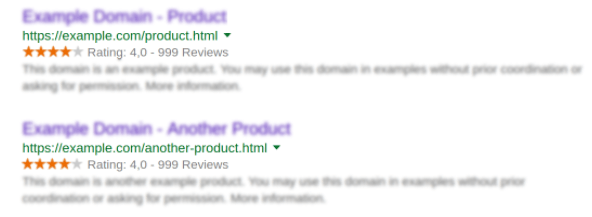
In every competitive niche, you’ll find sites that do not play by or bend Google’s Webmaster Guidelines.
If that’s how a direct competitor is getting ahead in the game, you can submit a spam report to Google to alert them to the violation.
Here’s how to get Google’s attention with it.
Make it actionable
Spam reports are for the most part processed manually. In essence, an experienced Google employee reads the report and then attempts to evaluate the violation highlighted. A detailed spam report is both actionable and respectful of the Googler’s time.
Describing at length why a competitor’s site needs Google Search team’s attention or listing respective queries for which it may be ranking isn’t very useful; it’s just not enough information.
Instead, clearly defining violations such as a site buying PageRank passing links or a site that is presenting different content to users and search engine bots helps clearly lay out the infractions.
A site can be in violation of any number of Google’s quality and/or technical guidelines. With each violation reported, including a reference to the respective Google Webmaster Guidelines will demonstrate an in-depth investigation and consequently, a more promising case.
Provide details
Every violation highlighted must be supported by replicable examples, such as specific universal resource locators (URLs) of pages linking with a distinct anchor text to an optimized landing page. The more examples provided the better; however, common sense dictates there’s no need to go into hundreds of similar examples. A few dozen will do.
The Google employee tasked with processing the spam report will be able to verify if any of the examples highlighted are indeed an issue and act accordingly.
Get to the point
An actionable spam report should not include any information of little or no relevance. With the exception of a greeting, anything but an accurate description of the perceived violations is unnecessary.
This includes the personal motivation for submitting the spam report. The same rule applies to the person or organization submitting the report. Google’s primary concern is to maintain high user satisfaction and avoid manipulation attempts often called “black hat SEO.”
Google does not care who submits a spam report or why. Any information that does not help Google identify and replicate the spam issue wastes all stakeholders’ time. None of the “extra” information increases the chance for a manual penalty to be applied and should therefore be excluded.

Which violations to report
Any confirmed and egregious Google Webmaster Guidelines violation can be reported, but experience shows some violations are more likely to be acted on than others.
For example, “black hat” methods that relate to PageRank passing link building are not only most common, they also tend to be most likely to trigger an in-depth investigation resulting in Google taking visible action.
Large, content-lean competitor websites may also be prone to violating Google content guidelines by artificially inflating their on-page signals. An example of this might be adding keyword-rich, low-quality content landing pages on a large scale. This is why looking for auto-generated, thin content and/or doorway pages is recommended.
Lastly, the application of false or deceptive structured data which leads to increased Google search results real estate and better click-through-rates (CTRs) due to compelling rich snippets with overwhelmingly positive ratings and reviews are relatively easy to identify. Since Google considers this highly important, they are more likely to take structured data spam more seriously.

What to expect
Building a compelling spam report argument requires resources. Hence managing expectations, your own and those within the organization, with respect to the possible outcome of submitting a spam report, is important.
A competitor spam report is not an SEO magic bullet, even if it works exactly as expected. Chances are if the violation is confirmed and a manual spam action is applied, this will be only a temporary setback to the affected site.
Every penalized site gets another chance to get back in Google’s good graces and apply for reconsideration at any point in time. Once the violation has been addressed and fixed, Google may remove any manual action applied. Depending on the technique used that resulted in the penalty, the affected website may or may not recover to previously enjoyed search engine result page (SERP) visibility, even after successful reinclusion by Google.
Organic search visibility is in a constant state of flux and depends on a great many factors, some of which can not be influenced. Even if the offending site drops in Google search considerably, a penalty will eventually time out.
Also, the competitor may find another way of boosting other, more relevant search engine optimization (SEO) signals by, for example, improving page speed or doing legitimate outreach and link acquisition.
A successful competitor spam report does not, of course, fix one’s own website’s SEO shortcomings, which may provide infinitely more opportunities to act upon and improve.
No feedback given
Finally, Google does not provide any feedback in regard to how successful a spam report has been, which can be frustrating.
They also do not appear to check any websites associated with the account used for the spam report. While keeping a clean SEO house is always a good strategy, SEO skeletons in one’s own closet are not roadblocks to reporting a competitor violating guidelines.
Still, despite all the points raised above, and particularly in fiercely competitive niches where every position counts, maintaining a vigilant eye over the competition’s adherence to SEO best practices is a must.
Compared to the time needed to conduct an in-depth, technical on- and off-page audit for your site, submitting a spam report is a relatively low-cost effort that is often worth doing.
If in doubt, the entire process of investigation and analysis can be outsourced to a third-party specialist with a proven track record of successfully uncovering Google Webmaster Guidelines violations.
Opinions expressed in this article are those of the guest author and not necessarily Search Engine Land. Staff authors are listed here.
